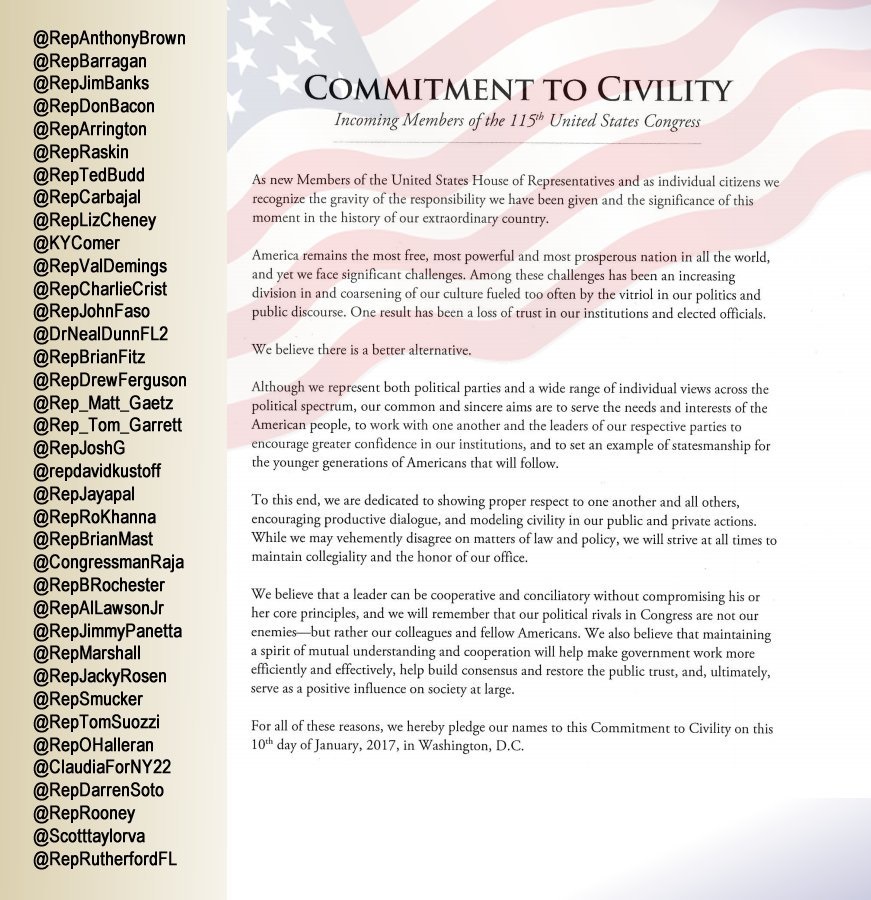Reflections on the Commitment to Civility Pledge and where we go from there.
Is bipartisanship possible or the ongoing story of America? Last year on Jan 10th nearly all of the incoming members of the U.S. House of Representatives signed a Commitment to Civility which outlined their dedication to showing “proper respect to one another and all others, encouraging productive dialogue, and modeling civility in our public and private actions.” Following the shooting of Representative Steve Scalise (R-LA) 120 members signed on. Click here for the signed commitment to civility document.
How well did the commitment do and just how many took the pledge to heart? According to recent interviews with 18 freshmen members who signed the original pledge, the result was in some cases friendships and partnerships that were formed, despite deep political divisions. The author of the commitment was Representative Mike Johnson (R-LA) who used the relationship between President Reagan and House Speaker Tip O’Neill as the model.
The pledge was borne out of a recognition that occurred to Johnson during a retreat for freshman members.
“We just went around a U-shaped table, and everyone shared their parting reflections on the weekend and the start of this new Congress,” he said. “Every single person said basically the same thing: That they were sick of the tone in Washington, that they were inspired to run for office to do things differently. (Civility pledge reflections across aisle friendships)”
However, it turns out that signing a document with the best intentions does not always mean that it will be easy to undo systemic lack of civility.
“It’s been a very contentious first year for a freshman in this environment,” Minnesota Republican Jason Lewis said. “But I think if you stay focused on the issues and why you came here — to leave the place a little better than you found it — it becomes a lot easier.” (Across the aisle in a tumultuous congress)
It is a new year. Some new faces are arriving in Washington and in local and state legislatures. There will be times when leaders should stand their ground but, we believe, far more opportunities to find common ground that leads to real progress on our toughest issues. To capitalize on those opportunities, it is crucial to create relationships among leaders is crucial. So, we say “thank you for a job well done” to those leaders who are forging new relationships and mentor-ships – even friendships – with their new colleagues.





